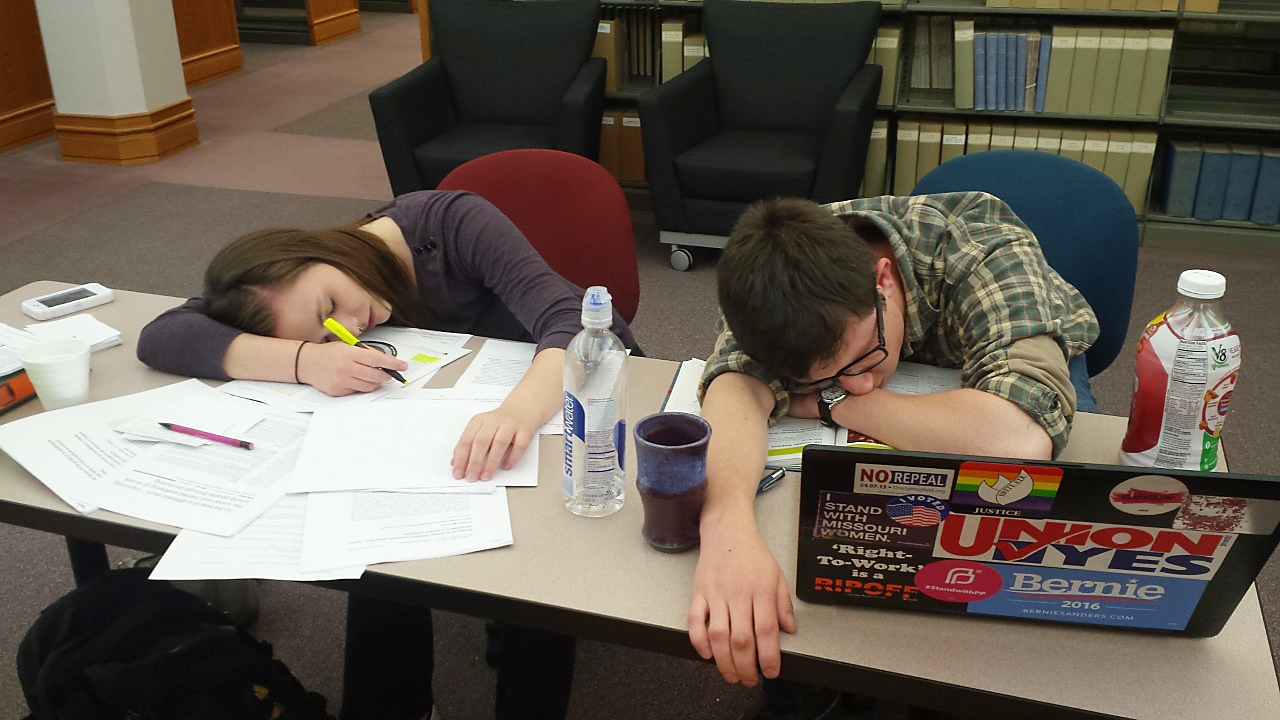
We all know about that famous hill our parents and grandparents had to walk up both ways to get to school, sometimes in the rain and snow. The message is clear: Life is tough, and we need to work hard to succeed. Our families and role models are undoubtedly correct, however, when do we draw the line between hard work and working too hard?
With the ever increasing pressures of modern day life, it is easy to become overloaded to the point where it is not only mentally overwhelming, but physically unhealthy. The emergence of technology in the last several decades has created a 24/7 access to our “work” and a seeming inability to escape it. With this ever growing culture, employers begin not only to not appreciate that hard work, but to expect it. This leads to a mindset where a 4.0 GPA and being active in 5 clubs is not enough. If everyone is working hard, how do you stand out?
This mentality affects people of all ages, but arguably it affects college students the most.
Adam Knowlden, a professor of health science at the University of Alabama, determined that last year, “while one-third percent of the general population isn’t getting enough Z’s, 60 percent of the college population gets insufficient sleep.”
According to the National Sleep Foundation, a young adult from 18-25 years old, should be getting 7-9 hours of sleep each night. “On average, most college students get 6 – 6.9 hours of sleep per night, and the college years are notoriously sleep-deprived due to an overload of activities,” states the University Health Center. Clearly we need more shut eye, but does our personal comfort really matter in the face of productivity?
The sadly, while we are losing sleep to get more done, the quality and quantity of work we are producing is also lessened.
The annual National Sleep Foundation’s Sleep in America survey stated, “that 40 percent of respondents were impatient with others at work; 27 percent frequently found it hard to concentrate; and 20 percent had lower productivity than they expected.”
Even further than the repercussions in the work force, there are mental and physical health costs.
“The stress that goes along with working too much has been shown to lead to substance abuse, sleep disorders, anxiety and ultimately to physical problems like heart disease,” the New York Times reported in “When Hard Work Becomes Overwork,” an article on overworking. It is time for our society to take a step back and set realistic goals.
This problem is not something colleges are oblivious to. The University of Michigan is now installing napping stations.
“The purpose for all of this is first to offer people who are tired a space where they can actually go and rest, and the second part is to really raise awareness of how sleep deprivation has such a negative impact on health overall,” said Adrian Bazbaz, a junior at the University who initiated the program.
His concern is not unwarranted or unappreciated. “Of the students who received surveys, 500 submitted responses that were overwhelmingly in favor of having nap stations, and 96 percent of respondents felt fatigue was disrupting their performance,” reported the article in the Washington Times.
Clearly it is time to make a change, and places like Michigan University are on the right track.
To quote Jason Bateman from The Switch, “Look at us. Running around, always rushed, always late. I guess that’s why they call it the human race.”
So how about we slow down for a minute, or heck maybe even 7-9 hours, and get some much needed sleep.